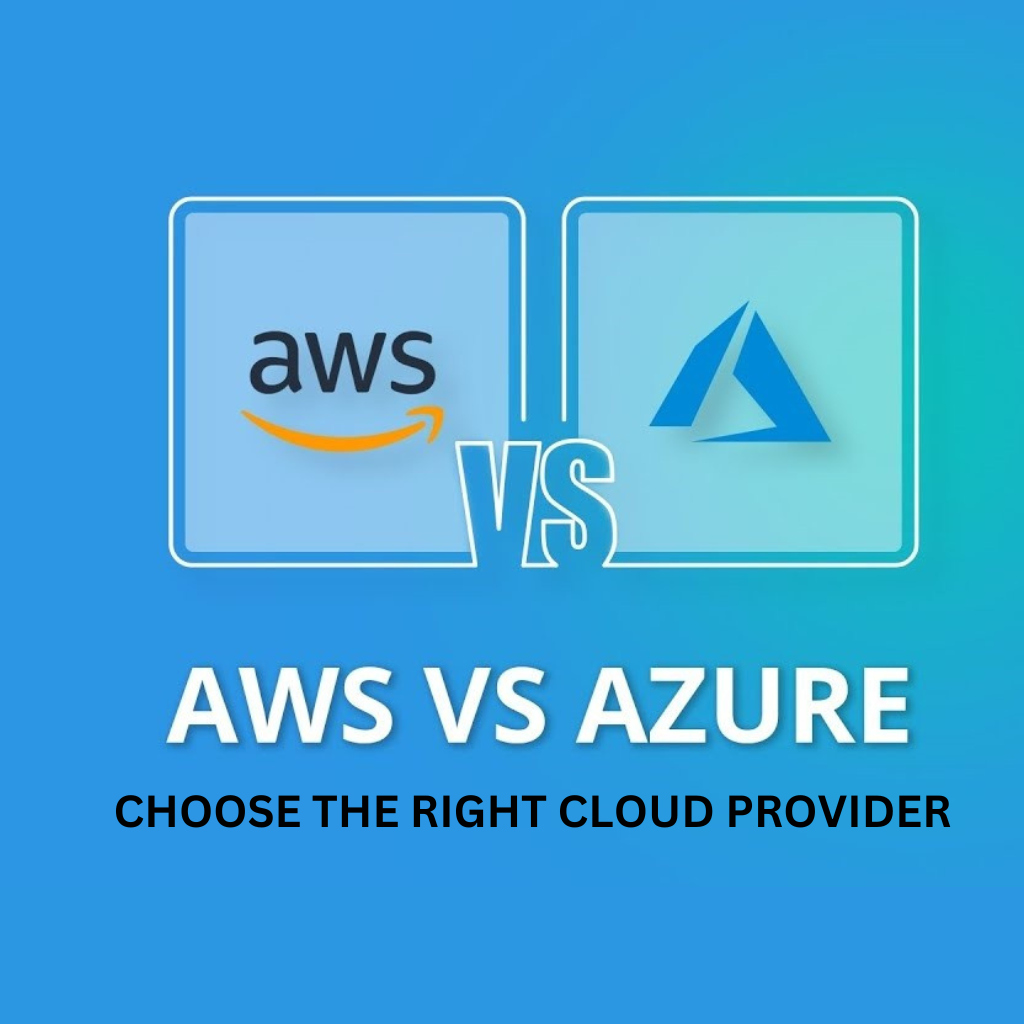- Home
- About
- Services
- Managed SOC Security Service
- Azure Virtual Desktop Service
- Defender For Endpoint Technologies To Safeguard Networks
- Cloud Managed Services
- Email Security Services Provider
- Expert Citrix Consulting Services
- IT Help Desk
- PKI Consulting
- Microsoft Cloud App Security Services
- Microsoft Defender For Identity Security Services
- Market Research Services
- Modern Workplace
- Web Development Services
- Active Directory Consulting
- Azure Cloud Managed Security Services
- IT Training Services
- CRM (Customer Relationship Management) Services
- ERP Services
- Ticketing System Service
- Partnership
- Blog
- Contact
AZURE vs AWS: HOW CONSULTING SERVICES HELP YOU CHOOSE THE RIGHT CLOUD PROVIDER

Introduction:
Microsoft Azure:
Microsoft Azure is a cloud computing platform which is provided by Microsoft. It offers various cloud services which includes computing, storage, databases, networking, analytics, AI, and machine learning, Internet of Things, various developer tools etc. Azure has a strong focus on hybrid cloud solutions, allowing businesses to seamlessly integrate on-premises infrastructure with Azure’s cloud services. Azure integrates well with Microsoft’s other products and services, such as Windows Server, Active Directory, and Office 365 etc.
Amazon Web Services (AWS):
AWS is a cloud computing platform which is provided by Amazon.com. It offers various cloud services, including computing, storage, databases, machine learning, analytics, content delivery, Internet of Things security etc. AWS provides a variety of tools and services for developers, so it now popular among startups and enterprises.
Azure vs AWS:
Azure and AWS are two different leading cloud computing platforms; you must choose them based on your specific needs and requirements. Let’s compare them in various aspects:
1) Service Offerings:
- Azure: Azure offers various different services which include Virtual Machines, App Service, Azure Functions, Azure SQL Database and much more.
- AWS: AWS provides various services such as Amazon EC2 (virtual machines), AWS Lambda (server less computing), Amazon RDS (managed relational databases), Amazon S3 (object storage) etc.
2) Market Share:
- Azure: Azure is now the second-largest cloud provider by market share, and it shares a significant presence in enterprise environments, especially due to its integration with Microsoft technologies.
- AWS: AWS is considered the largest cloud provider, known for its early market dominance and extensive global infrastructure.
3) Pricing:
- Azure: Azure’s pricing models are competitive, and it has options for pay-as-you-go or reserved instances. It also offers various cost advantages for Windows-based workloads due to license flexibility.
- AWS: AWS offers a pay-as-you-go model with various pricing options. It also provides extensive cost management tools such as AWS Cost Explorer and AWS Trusted Advisor.
4) Global Reach:
- Azure: Azure has a global reach, and it is suitable for global deployments.
- AWS: AWS has a broader global network of data centers which provides advantages to businesses with worldwide operations.
5) Security and Compliance:
- Both Azure and AWS provide strong security measures and compliance certifications. The choice may depend on your business needs.
6) Support and Documentation:
- Both Azure and AWS offer extensive documentation and support options, including premium support plans for businesses.
How Consulting Service Help You Choose the Right Cloud Provider
Choosing the right cloud provider, whether it is Amazon Web Services (AWS), or Microsoft Azure is a tough decision to make for any organization. The selection process involves evaluating various factors which include your business goals, technical requirements, budget constraints, and compliance needs. Consulting services can be invaluable in guiding you through the entire complex decision-making process. Here’s how consulting service helps you choose the right provider.
- Consultants will work closely with your organization to understand your business objectives and goals.
- Consultants will assess your existing infrastructure, applications, and workloads to determine which cloud provider is best for your business and accommodate your specific technical needs.
- Consulting services will help you estimate the total cost of ownership (TCO) for each cloud provider, including several factors in pricing models, data transfer costs, storage, and expenses.
- They’ll work to ensure that your cloud service aligns with your budget constraints and also it provides best value for your investment.
- Consultants will provide you with full security measures, handle data encryption, and ensure privacy.
- Consultants will identify the risk and provide you with the best strategies to mitigate those risks.
- Consultants can assist in planning and executing the migration of your workloads and data to the cloud.
- They will also optimize your cloud infrastructure and services for performance, cost efficiency and security.
Conclusion:
Consulting services will help your business choose the right cloud provider by providing expert guidance and ensure that the strategies are aligning with your business objectives. They bring valuable insights and expertise to help you make an informed decision that will benefit your business efficiency, scalability, and long-term success in the cloud.
Connect with us to know more about Consulting Services

